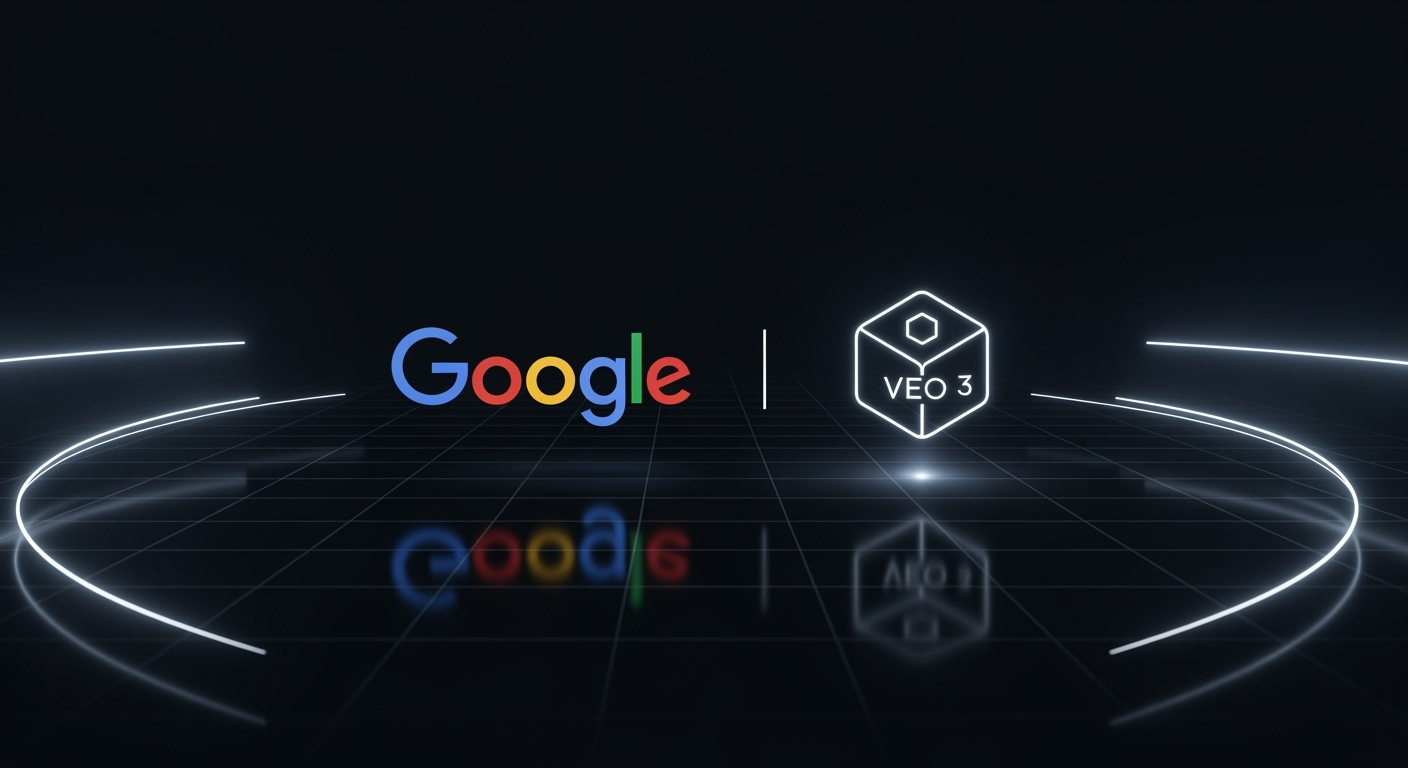Google Veo 3: The Dawn of Playable AI Worlds?

Could Google's latest video-generating model, Veo 3, be a stepping stone towards creating truly playable virtual worlds? Recent interactions on X (formerly Twitter) involving Google DeepMind CEO Demis Hassabis and Google AI Studio's Logan Kilpatrick have sparked speculation that this might indeed be the case.
From Video Generation to Playable Worlds
The conversation began when a user on X mused about playing video games with their Veo 3 videos, asking "playable world models wen?". Hassabis responded, now wouldn't that be something [1], with Kilpatrick adding a cryptic 🤐🤐🤐🤐 [1]. While these were playful suggestions, they hint at a fascinating future for AI in gaming.
Understanding the Difference: Veo 3 vs. World Models
It's crucial to distinguish between video generation models like Veo 3 and true world models. Veo 3 synthesizes realistic video sequences, even incorporating audio and simulating real-world physics for realistic movements. It's excellent for cinematic storytelling, cutscenes, and trailers in games. However, it's currently a "passive output" generative model.
In contrast, a "world model" simulates the dynamics of a real-world environment, allowing AI agents to predict how the world will evolve based on their actions. This is the foundation for truly interactive and dynamic virtual environments.
Google's Ambitious Plans
Google is already deeply invested in world model research:
- The company plans to evolve its multimodal foundation model, Gemini 2.5 Pro, into a world model capable of simulating aspects of the human brain.
- DeepMind previously unveiled Genie 2, a model designed to generate an "endless" variety of playable worlds [2].
- Google has also formed a new team specifically to work on AI models that can simulate the real world [3].
This strategic focus suggests a clear path towards interactive AI-generated environments.
The Road Ahead: Challenges and Competition
While Veo 3 is impressive, transforming it (or a future iteration) into an active, interactive, and predictive simulator for games presents significant challenges, particularly in achieving real-time, consistent, and controllable simulation. A hybrid approach, combining Veo's visual prowess with Genie's interactive world generation capabilities, could be Google's winning strategy.
The field is becoming increasingly competitive. Google could find itself vying with:
- Microsoft, which has also unveiled a world AI model for video games [4].
- Startups like Fei-Fei Li's World Labs, which generates interactive 3D scenes from single images [5].
- Other generative AI companies such as Scenario [6], Runway, Pika, and potentially OpenAI's Sora model, which has also shown capabilities in rendering video game-like environments [7] [8].
Conclusion
Given Google's significant investments, its deep pockets, and its history of leveraging distribution muscle, the company is well-positioned to be a major player in the development of playable world models. While Veo 3 isn't a world model yet, its evolution and integration with other Google AI initiatives could indeed mark the dawn of a new era for interactive digital experiences.
References
- [1] Hassabis, Demis. "now wouldn't that be something…" X. July 2, 2025.
- [2] Wiggers, Kyle. "DeepMind’s Genie 2 can generate interactive worlds that look like video games." TechCrunch. December 4, 2024.
- [3] Wiggers, Kyle. "Google is forming a new team to build AI that can simulate the physical world." TechCrunch. January 6, 2025.
- [4] Nash, Kim. "Microsoft unveils world AI model for video games." TechTarget. December 12, 2024.
- [5] Wiggers, Kyle. "World Labs’ AI can generate interactive 3D scenes from a single photo." TechCrunch. December 2, 2024.
- [6] Lardinois, Frederic. "Scenario lands $6M for its AI platform that generates game art assets." TechCrunch. January 19, 2023.
- [7] OpenAI. "Video generation models as world simulators." OpenAI. February 15, 2024.
- [8] Wiggers, Kyle. "OpenAI’s Sora video-generating model can render video games, too." TechCrunch. February 15, 2024.





